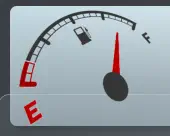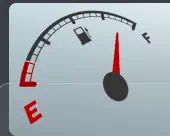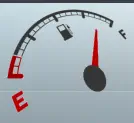





Frequently Asked Questions


Q1. I’ve put the wrong fuel in my car / van / motorbike, what should I do if...
I am still at the pumps?
- Do Not turn the ignition on.
- Inform the forecourt staff who will either push you away from the pumps or place cones around your vehicle.
- Get professional advice. If it’s a small amount of the wrong fuel you may be able to safely top up with the right fuel (See Q2).
I've Left the forecourt and the engine is not running properly?
- Park up as soon as possible in a safe place.
- Turn Off the ignition.
- If the engine has stopped in the road then turn on your hazard lights and seek help to push you to a safe place. Driver and passengers should not stay in the vehicle if it can’t be moved to a safe place.
- If you are unable to move it to a safe place then depending on the road you may need a breakdown service to move it. Get professional advice.
Q2. I’ve only put a small amount of the wrong fuel in, is it safe to top it up?
If the small amount of petrol is 7.5% of the fuel tank capacity (5% for diesel in petrol) then yes but you will need to completely fill the tank. Be advised a small amount may be less than you might imagine for example:
7.5% of petrol in a medium size car with a 55 litre tank is approximately 4 litres.
If you are not sure what your tank capacity is then check your owners manual or call us for advice on
01472 86 70 70
Don't guess it - check it, or you may end up needing a drain and losing a full tank!
Q3. What does a fuel drain cost?
Depending on the provider, typical prices start between £130 and £230. Most providers charge more for evenings, weekends and Bank Holidays and may charge extra for the distance travelled to attend.
Some companies have prices starting at £99 but that is usually for non-urgent jobs and does not necessarily include in the price fresh fuel or VAT if applicable.
Our prices can be found HERE
Q4. Can you just get the petrol out and leave the diesel in the tank?
Unfortunately, No. It all has to come out.
As you fill the tank the fuels will swirl and mix easily. Very much like adding milk to tea. Turning the ignition on or starting the engine then gives it a good stir.
Q5. What is a safe amount of petrol in a diesel car?
Motor manufacturers will usually say ‘none’ though it is generally accepted by the industry that less than 7.5% of petrol in diesel is safe and the vehicle should show no symptoms of misfuelling.
Most diesel cars built before 2005 should be safe upto 10%. Though this may not include high end models which adopt new technology sooner.
Q6. What damage does petrol do to a diesel engine?
Putting in more than the safe amount progressively reduces the lubricating quality of the diesel which the Low and High Pressure Fuel Pumps rely on. As the lubrication is reduced, friction increases causing heat to build up and metals to expand. This leads to excessive wear and the potential failure of the pump. Minute particles from the High Pressure Pump can block injectors adding to the cost of repair.
Gummed up Injectors, Turbo failure and leaks in the fuel system can also be attributed to fuel contaminated with petrol.
Q7. What is a safe amount of diesel in a petrol car?
Diesel is not aggressive compared to petrol and does not ‘attack’ the engine components though exceeding 5% of diesel in petrol will cause problems.
Q8. What damage does diesel do to a petrol engine?
Exceeding 5% will contaminate the catalytic converter which if excessive would have to be replaced.
It does not damage the engine as such but will cause a problem starting a cold engine or it will not start at all.
Damage will occur if the engine does start and is driven. It will lack power and run rough/lumpy as the diesel ignites out of sync to the petrol putting abnormal stresses on the engine. Continuing to drive in this condition will potentially damage the engine. Though a sensible person will stop and call for help before this happens.
Q9. What is a safe amount of Adblue in the diesel tank?
NONE.
Even a small amount such as half a litre could bring your engine to a stop as Adblue doesn’t burn.
It is not a fuel or fuel additive. Adblue is a popular brand name of a Diesel Exhaust Fluid. It is injected in small quantities into the exhaust system as a catalyst to reduce emissions. It is 35% manufactured Urea and 65% de-ionised water and smells of ammonia. It is highly corrosive and will damage most metals and plastics.
Q10. What damage does Adblue do to a diesel engine?
The Adblue system uses safe materials to store and deliver the Adblue to the SCR (Selective Catalytic Reduction) catalyst. The diesel fuel system and engine are specifically designed for diesel and as such can tolerate a small amount of petrol but not tolerate any Adblue.
It does not mix well with diesel and being of a higher specific gravity it will settle to the bottom of the tank where the fuel is drawn into the engine. Turning on the ignition will circulate neat Adblue through pumps, filter, common rail and back to the fuel tank. Starting the engine will draw neat Adblue into the injectors and cylinders and although it may run initially it will soon stop as the Adblue does not combust. The Adblue will now be reacting with all the components it is in contact with.
It is essential the problem is dealt with promptly before any damage is done. At worst the vehicle could be a write off due to the cost of parts and labour to replace the whole fuel system and the engine. At best the fuel filter will need changing after the contaminated fuel has been removed and replaced.
Getting professional advice
Call 01472 867070 for no obligation free advice. We will not pressure you or ask you to commit to using us should you want to try and find a quicker or cheaper service.





Frequently Asked Questions


Q1. I’ve put the wrong fuel in my car / van / motorbike, what should I do if...
I am still at the pumps?
- Do Not turn the ignition on.
- Inform the forecourt staff who will either push you away from the pumps or place cones around your vehicle.
- Get professional advice. If it’s a small amount of the wrong fuel you may be able to safely top up with the right fuel (See Q2).
I've Left the forecourt and the engine is not running properly?
- Park up as soon as possible in a safe place.
- Turn Off the ignition.
- If the engine has stopped in the road then turn on your hazard lights and seek help to push you to a safe place. Driver and passengers should not stay in the vehicle if it can’t be moved to a safe place.
- If you are unable to move it to a safe place then depending on the road you may need a breakdown service to move it. Get professional advice.
Q2. I’ve only put a small amount of the wrong fuel in, is it safe to top it up?
If the small amount of petrol is 7.5% of the fuel tank capacity (5% for diesel in petrol) then yes but you will need to completely fill the tank. Be advised a small amount may be less than you might imagine for example:
7.5% of petrol in a medium size car with a 55 litre tank is approximately 4 litres.
If you are not sure what your tank capacity is then check your owners manual or call us for advice on
01472 86 70 70
Don't guess it - check it, or you may end up needing a drain and losing a full tank!
Q3. What does a fuel drain cost?
Depending on the provider, typical prices start between £130 and £230. Most providers charge more for evenings, weekends and Bank Holidays and may charge extra for the distance travelled to attend.
Some companies have prices starting at £99 but that is usually for non-urgent jobs and does not necessarily include in the price fresh fuel or VAT if applicable.
Our prices can be found HERE
Q4. Can you just get the petrol out and leave the diesel in the tank?
Unfortunately, No. It all has to come out.
As you fill the tank the fuels will swirl and mix easily. Very much like adding milk to tea. Turning the ignition on or starting the engine then gives it a good stir.
Q5. What is a safe amount of petrol in a diesel car?
Motor manufacturers will usually say ‘none’ though it is generally accepted by the industry that less than 7.5% of petrol in diesel is safe and the vehicle should show no symptoms of misfuelling.
Most diesel cars built before 2005 should be safe upto 10%. Though this may not include high end models which adopt new technology sooner.
Q6. What damage does petrol do to a diesel engine?
Putting in more than the safe amount progressively reduces the lubricating quality of the diesel which the Low and High Pressure Fuel Pumps rely on. As the lubrication is reduced, friction increases causing heat to build up and metals to expand. This leads to excessive wear and the potential failure of the pump. Minute particles from the High Pressure Pump can block injectors adding to the cost of repair.
Gummed up Injectors, Turbo failure and leaks in the fuel system can also be attributed to fuel contaminated with petrol.
Q7. What is a safe amount of diesel in a petrol car?
Diesel is not aggressive compared to petrol and does not ‘attack’ the engine components though exceeding 5% of diesel in petrol will cause problems.
Q8. What damage does diesel do to a petrol engine?
Exceeding 5% will contaminate the catalytic converter which if excessive would have to be replaced.
It does not damage the engine as such but will cause a problem starting a cold engine or it will not start at all.
Damage will occur if the engine does start and is driven. It will lack power and run rough/lumpy as the diesel ignites out of sync to the petrol putting abnormal stresses on the engine. Continuing to drive in this condition will potentially damage the engine. Though a sensible person will stop and call for help before this happens.
Q9. What is a safe amount of Adblue in the diesel tank?
NONE.
Even a small amount such as half a litre could bring your engine to a stop as Adblue doesn’t burn.
It is not a fuel or fuel additive. Adblue is a popular brand name of a Diesel Exhaust Fluid. It is injected in small quantities into the exhaust system as a catalyst to reduce emissions. It is 35% manufactured Urea and 65% de-ionised water and smells of ammonia. It is highly corrosive and will damage most metals and plastics.
Q10. What damage does Adblue do to a diesel engine?
The Adblue system uses safe materials to store and deliver the Adblue to the SCR (Selective Catalytic Reduction) catalyst. The diesel fuel system and engine are specifically designed for diesel and as such can tolerate a small amount of petrol but not tolerate any Adblue.
It does not mix well with diesel and being of a higher specific gravity it will settle to the bottom of the tank where the fuel is drawn into the engine. Turning on the ignition will circulate neat Adblue through pumps, filter, common rail and back to the fuel tank. Starting the engine will draw neat Adblue into the injectors and cylinders and although it may run initially it will soon stop as the Adblue does not combust. The Adblue will now be reacting with all the components it is in contact with.
It is essential the problem is dealt with promptly before any damage is done. At worst the vehicle could be a write off due to the cost of parts and labour to replace the whole fuel system and the engine. At best the fuel filter will need changing after the contaminated fuel has been removed and replaced.
Getting professional advice
Call 01472 867070 for no obligation free advice. We will not pressure you or ask you to commit to using us should you want to try and find a quicker or cheaper service.






Frequently Asked Questions


Q1. I’ve put the wrong fuel in my car / van / motorbike, what should I do if...
I am still at the pumps?
- Do Not turn the ignition on.
- Inform the forecourt staff who will either push you away from the pumps or place cones around your vehicle.
- Get professional advice. If it’s a small amount of the wrong fuel you may be able to safely top up with the right fuel (See Q2).
I've Left the forecourt and the engine is not running properly?
- Park up as soon as possible in a safe place.
- Turn Off the ignition.
- If the engine has stopped in the road then turn on your hazard lights and seek help to push you to a safe place. Driver and passengers should not stay in the vehicle if it can’t be moved to a safe place.
- If you are unable to move it to a safe place then depending on the road you may need a breakdown service to move it. Get professional advice.
Q2. I’ve only put a small amount of the wrong fuel in, is it safe to top it up?
If the small amount of petrol is 7.5% of the fuel tank capacity (5% for diesel in petrol) then yes but you will need to completely fill the tank. Be advised a small amount may be less than you might imagine for example:
7.5% of petrol in a medium size car with a 55 litre tank is approximately 4 litres.
If you are not sure what your tank capacity is then check your owners manual or call us for advice on
01472 86 70 70
Don't guess it - check it, or you may end up needing a drain and losing a full tank!
Q3. What does a fuel drain cost?
Depending on the provider, typical prices start between £130 and £230. Most providers charge more for evenings, weekends and Bank Holidays and may charge extra for the distance travelled to attend.
Some companies have prices starting at £99 but that is usually for non-urgent jobs and does not necessarily include in the price fresh fuel or VAT if applicable.
Our prices can be found HERE
Q4. Can you just get the petrol out and leave the diesel in the tank?
Unfortunately, No. It all has to come out.
As you fill the tank the fuels will swirl and mix easily. Very much like adding milk to tea. Turning the ignition on or starting the engine then gives it a good stir.
Q5. What is a safe amount of petrol in a diesel car?
Motor manufacturers will usually say ‘none’ though it is generally accepted by the industry that less than 7.5% of petrol in diesel is safe and the vehicle should show no symptoms of misfuelling.
Most diesel cars built before 2005 should be safe upto 10%. Though this may not include high end models which adopt new technology sooner.
Q6. What damage does petrol do to a diesel engine?
Putting in more than the safe amount progressively reduces the lubricating quality of the diesel which the Low and High Pressure Fuel Pumps rely on. As the lubrication is reduced, friction increases causing heat to build up and metals to expand. This leads to excessive wear and the potential failure of the pump. Minute particles from the High Pressure Pump can block injectors adding to the cost of repair.
Gummed up Injectors, Turbo failure and leaks in the fuel system can also be attributed to fuel contaminated with petrol.
Q7. What is a safe amount of diesel in a petrol car?
Diesel is not aggressive compared to petrol and does not ‘attack’ the engine components though exceeding 5% of diesel in petrol will cause problems.
Q8. What damage does diesel do to a petrol engine?
Exceeding 5% will contaminate the catalytic converter which if excessive would have to be replaced.
It does not damage the engine as such but will cause a problem starting a cold engine or it will not start at all.
Damage will occur if the engine does start and is driven. It will lack power and run rough/lumpy as the diesel ignites out of sync to the petrol putting abnormal stresses on the engine. Continuing to drive in this condition will potentially damage the engine. Though a sensible person will stop and call for help before this happens.
Q9. What is a safe amount of Adblue in the diesel tank?
NONE.
Even a small amount such as half a litre could bring your engine to a stop as Adblue doesn’t burn.
It is not a fuel or fuel additive. Adblue is a popular brand name of a Diesel Exhaust Fluid. It is injected in small quantities into the exhaust system as a catalyst to reduce emissions. It is 35% manufactured Urea and 65% de-ionised water and smells of ammonia. It is highly corrosive and will damage most metals and plastics.
Q10. What damage does Adblue do to a diesel engine?
The Adblue system uses safe materials to store and deliver the Adblue to the SCR (Selective Catalytic Reduction) catalyst. The diesel fuel system and engine are specifically designed for diesel and as such can tolerate a small amount of petrol but not tolerate any Adblue.
It does not mix well with diesel and being of a higher specific gravity it will settle to the bottom of the tank where the fuel is drawn into the engine. Turning on the ignition will circulate neat Adblue through pumps, filter, common rail and back to the fuel tank. Starting the engine will draw neat Adblue into the injectors and cylinders and although it may run initially it will soon stop as the Adblue does not combust. The Adblue will now be reacting with all the components it is in contact with.
It is essential the problem is dealt with promptly before any damage is done. At worst the vehicle could be a write off due to the cost of parts and labour to replace the whole fuel system and the engine. At best the fuel filter will need changing after the contaminated fuel has been removed and replaced.
Getting professional advice
Call 01472 867070 for no obligation free advice. We will not pressure you or ask you to commit to using us should you want to try and find a quicker or cheaper service.






















